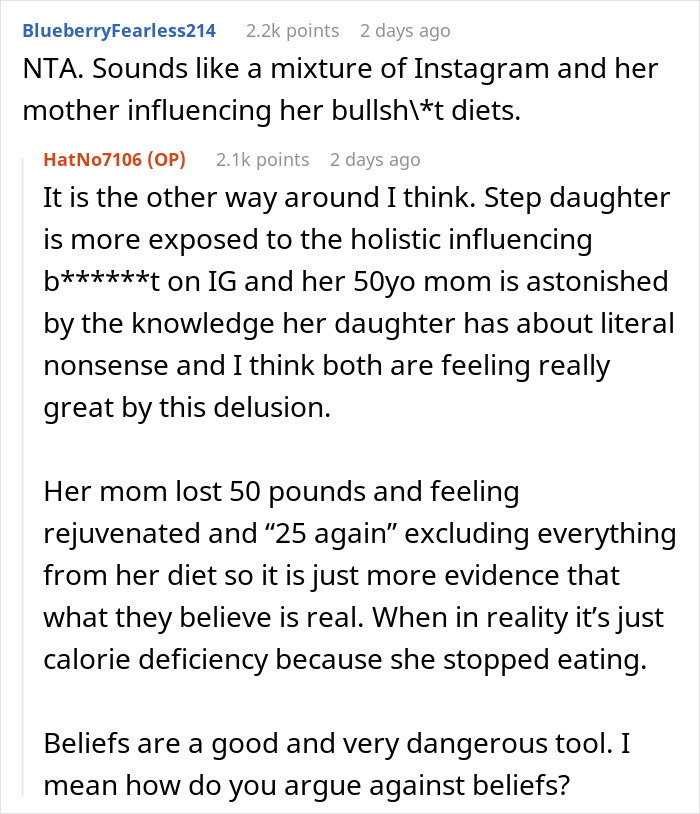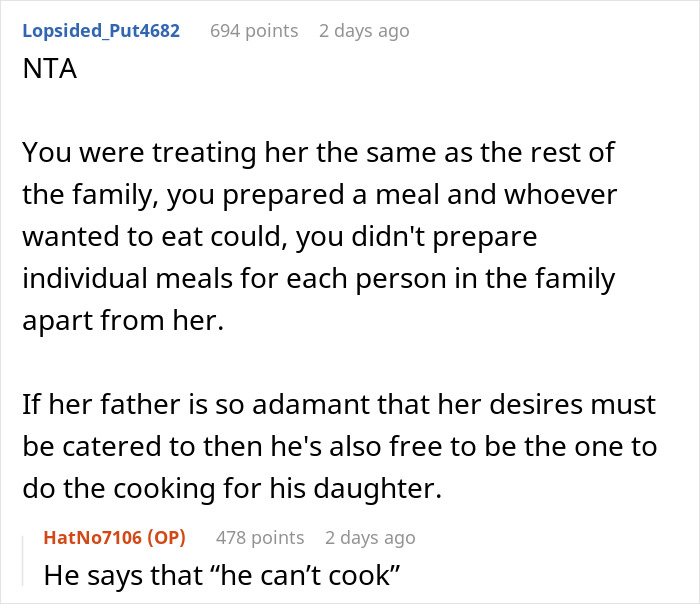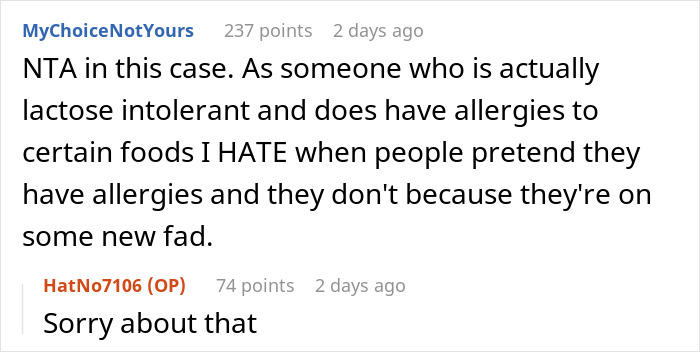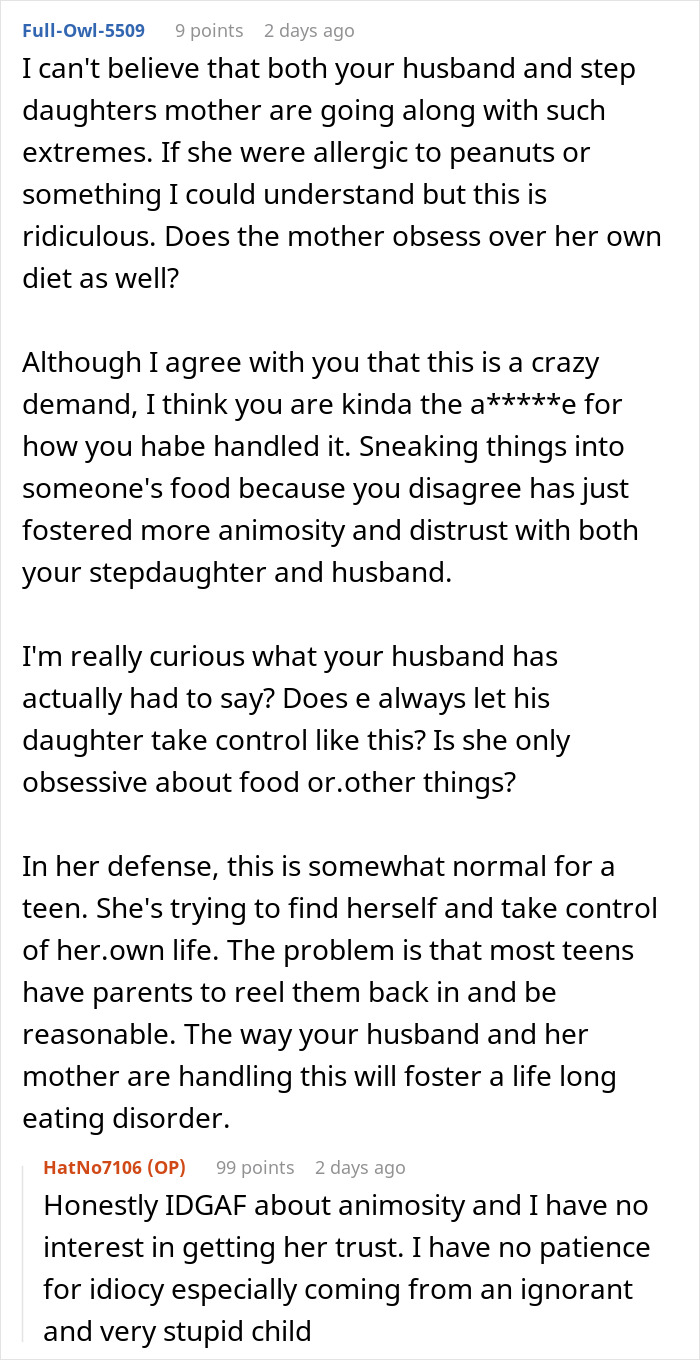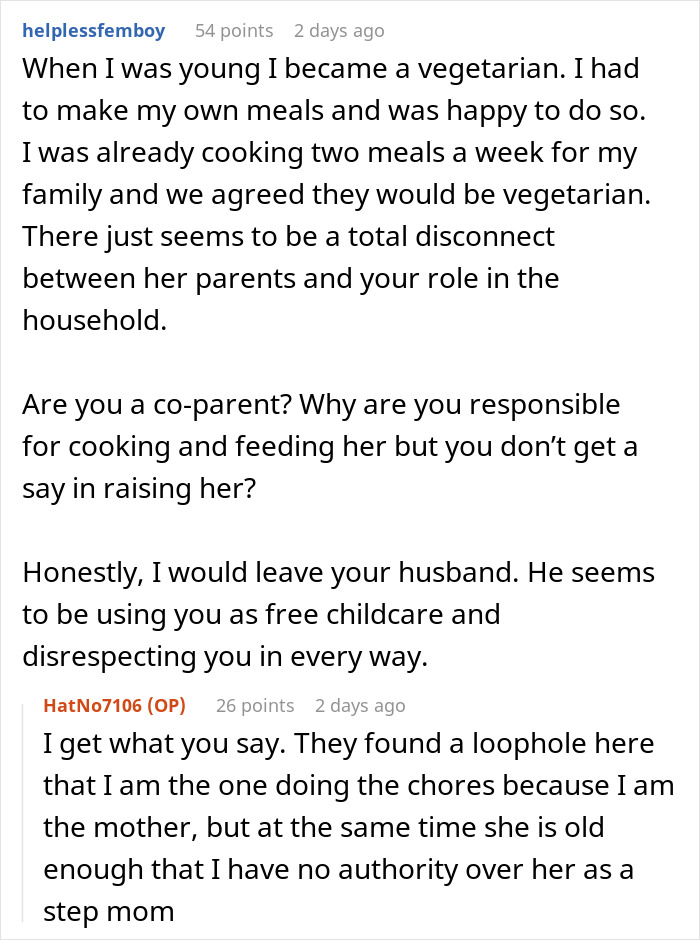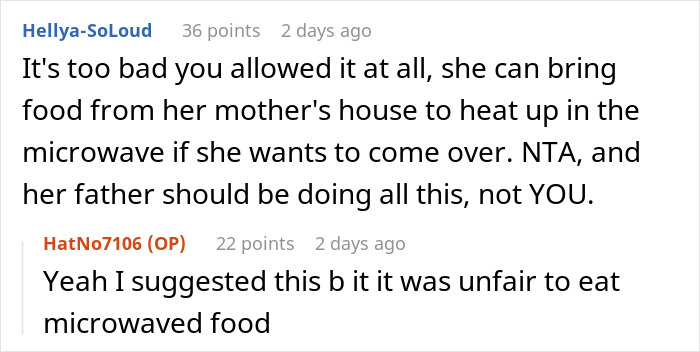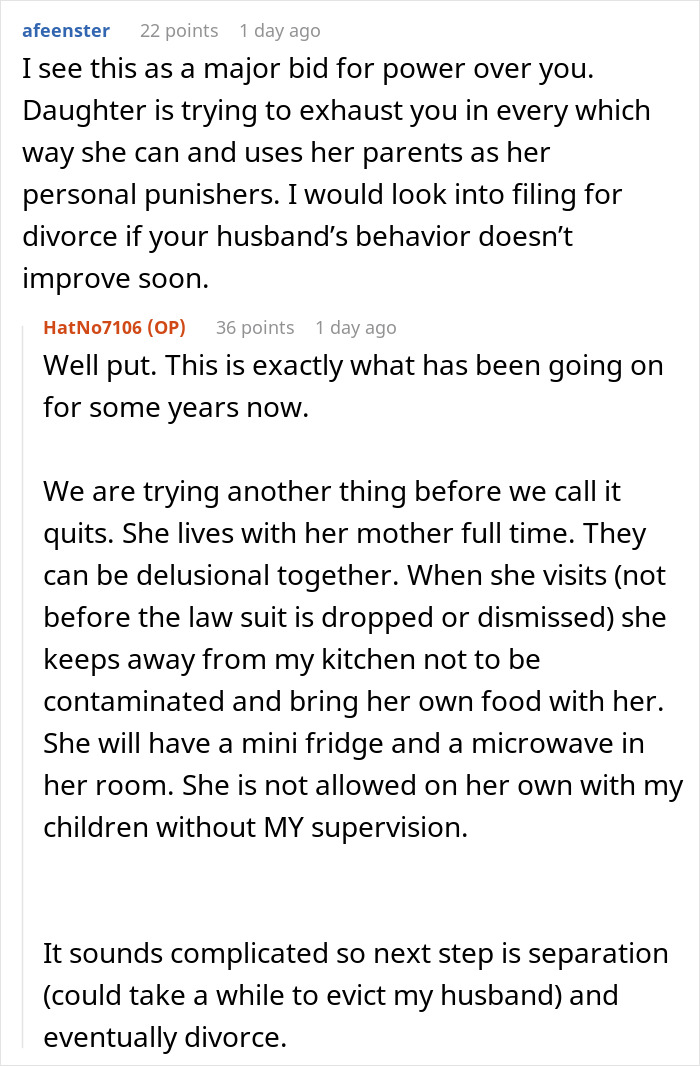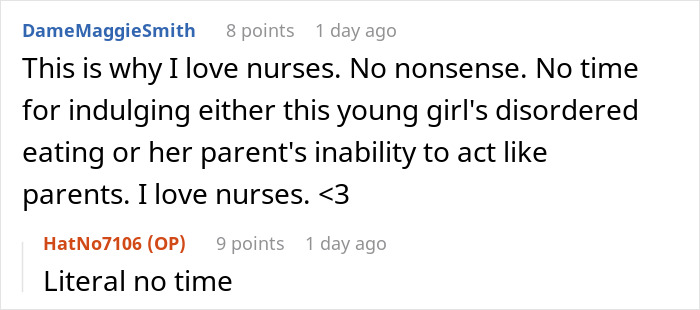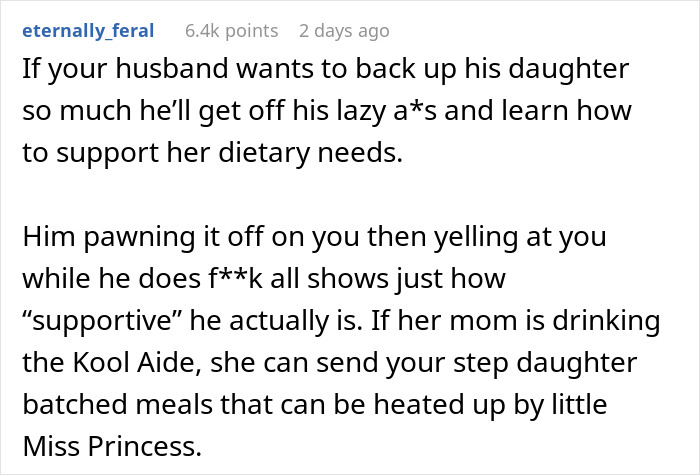It seems like every day there’s a new food trend circulating around the internet. You’ve just got to try putting butter in your coffee! Haven’t you heard bananas are bad for you? Forget rice, that’s toxic! We’re all about cauliflower now.
It can be exhausting trying to keep up with all of these complicated dietary fads. So one woman who has no patience for these trends recently shared on Reddit that her stepdaughter has suddenly developed a variety of “allergies.” But instead of accommodating them, this stepmother decided to keep feeding her what she always has. Below, you’ll find the full story, as well as a conversation with Registered Dietitian Nataly Georgieva from JM Nutrition.
This woman’s stepdaughter has suddenly decided to adopt a variety of dietary restrictions

Image credits: Becca Tapert / unsplash (not the actual photo)
But instead of accommodating the teen’s preferences, she has been feeding her the exact same meals as the rest of the family
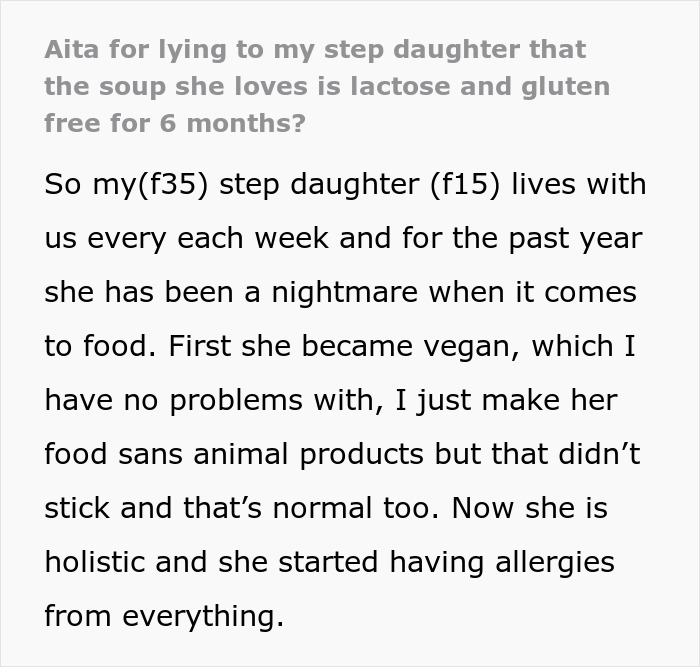
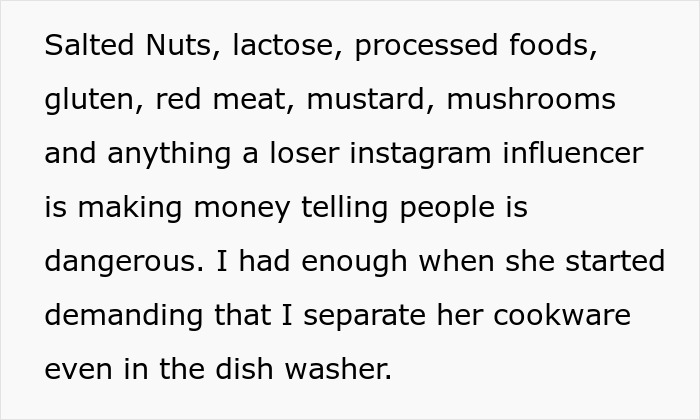


Image credits: Karolina Kaboompics / pexels (not the actual photo)

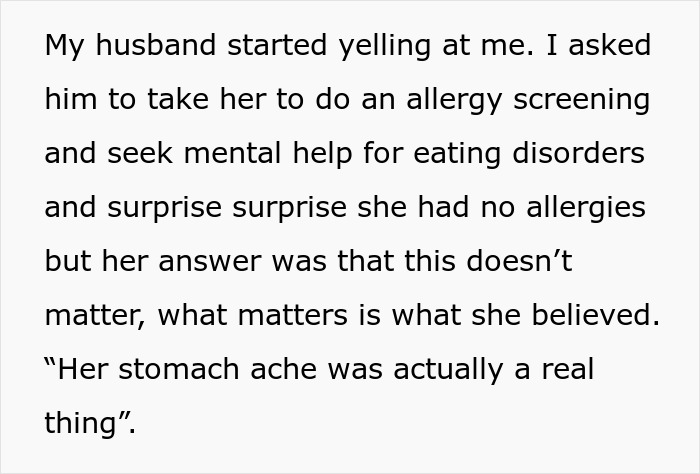

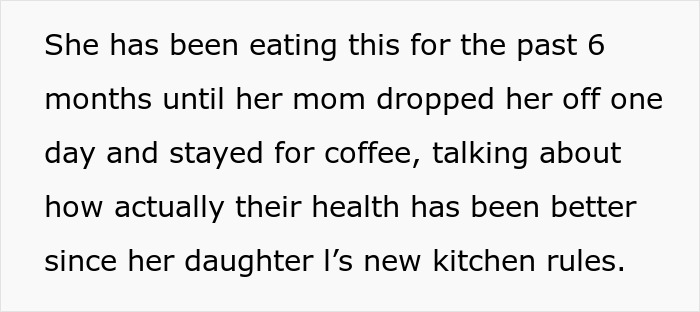
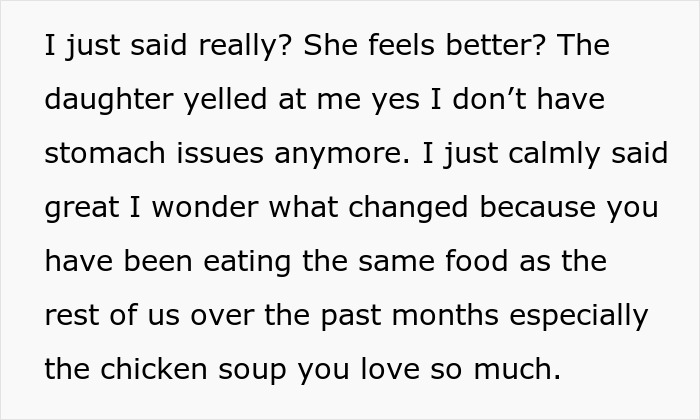

Image credits: Nonik Yench / pexels (not the actual photo)

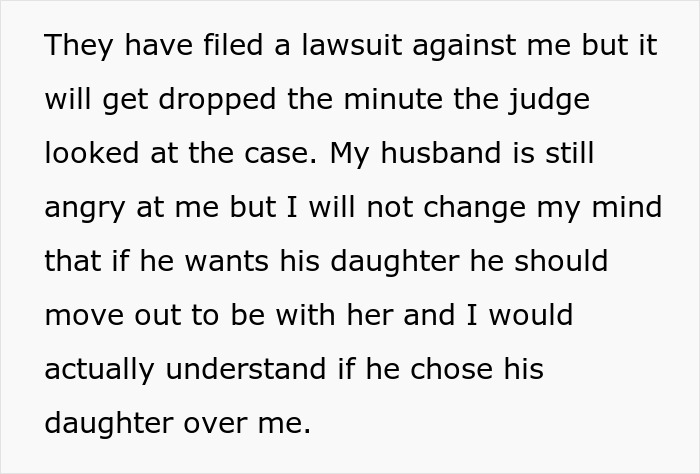


Image credits: HatNo7106
“There are no specific benefits associated with removing a particular food from one’s diet in the absence of a food allergy”
According to Statista, more than 40% of Americans follow some sort of special diet today, including high or low carb, lactose-free, gluten-free, vegetarian, pescetarian or vegan. The majority of these people do not have any food allergies though, as only 10% of Americans actually do, Food Allergy Research & Education reports. The most common food allergies in the US are shellfish, milk, peanuts, tree nuts, eggs, fin fish, wheat, soy and sesame. And about 40% of kids who have food allergies have more than one.
While many people choose to alter their diets to suit their preferences, being allergic to certain foods is not something to be jealous of. A third of kids who have a food allergy report being bullied because of it, and American families spend almost $25 billion each year caring for kids with food allergies. Not to mention the fact that those with severe allergies always have to be extremely cautious of what and where they eat, as cross contamination can sometimes be fatal.
To gain more insight into this topic, we reached out to Registered Dietitian Nataly Georgieva from JM Nutrition, who was kind enough to have a chat with Bored Panda. First, we wanted to know when it’s wise to remove a certain item or food group from your diet.
“There are very specific situations that warrant removal of a food or food group from one’s diet, such as folks with food allergies or certain medical conditions, for example, celiac disease, in which case gluten must be avoided,” Nataly shared. “Another example includes folks with Irritable Bowel Syndrome (IBS), who may be advised to follow a short-term elimination diet to determine the cause of their symptoms, though this is typically suggested as a last resort due to the restrictiveness of the diet.”
“Social media is subject to tons of food and nutrition misinformation”
Outside of these unique circumstances, however, the expert says extreme caution should be used when avoiding certain foods. “[Doing so] unnecessarily can potentially lead to the development of food rules or hypervigilance around food, increasing the risk of disordered eating,” Nataly warns. “There are no specific benefits associated with removing a particular food from one’s diet in the absence of a food allergy. Any reported benefits tend to be subjective to the individual.”
We were also curious about the impacts that social media can have on users’ diets. “Social media is subject to tons of food and nutrition misinformation, which is why it is important to only follow credible accounts, including reputable organizations or individuals who openly state their credentials/licenses,” Nataly told Bored Panda.
“Following food trends and dietary advice from social media accounts that are not credible may otherwise contribute to restrictive eating, body image concerns or appearance-related eating, harmful beliefs about food, and guilt and shame associated with eating foods that are demonized,” she continued.
And when it comes to how parents should address their kids wanting to cut out certain foods, Nataly encourages moms and dads to ask their kids questions from a place of curiosity and non-judgement. “This can help to provide a safe space for your child to open up.”
“By having a better understanding of where these dietary changes stem from, parents can then use that opportunity to debunk any harmful food beliefs”
If your child suddenly wishes to make dietary changes, Nataly recommends having an open discussion and asking them any of the following questions: “I’m curious, where is this sudden interest coming from? Where did you learn or obtain this information? What is the reason for wanting to make these dietary changes? What do you believe are the benefits? What beliefs do you have about that particular food?”
“By having a better understanding of where these dietary changes stem from, parents can then use that opportunity to debunk any harmful food beliefs, provide age-appropriate education, and role model what a healthy relationship with food looks like,” the dietician explained.
“Whether or not the accommodation is made should ultimately depend on the individual circumstances and how drastic the change is from how the child was eating previously,” she continued. “For example, is it just one specific food that the child no longer likes to eat, or is it an entire food group?”
Finally, Nataly noted that if you suddenly notice extreme dietary changes in your child, consider booking an appointment with a Registered Dietitian who specializes in disordered eating as soon as possible. “That way, the dietitian can assess whether your child displays any patterns of disordered eating and provide the appropriate intervention. The sooner treatment is sought, typically the better the outcome,” the expert shared.
We would love to hear your thoughts on this situation in the comments below, pandas. Then, if you’re interested in checking out another Bored Panda piece discussing dietary changes, look no further than right here!
Readers were quick to take the stepmother’s side, and she chimed in to provide more details about the situation

